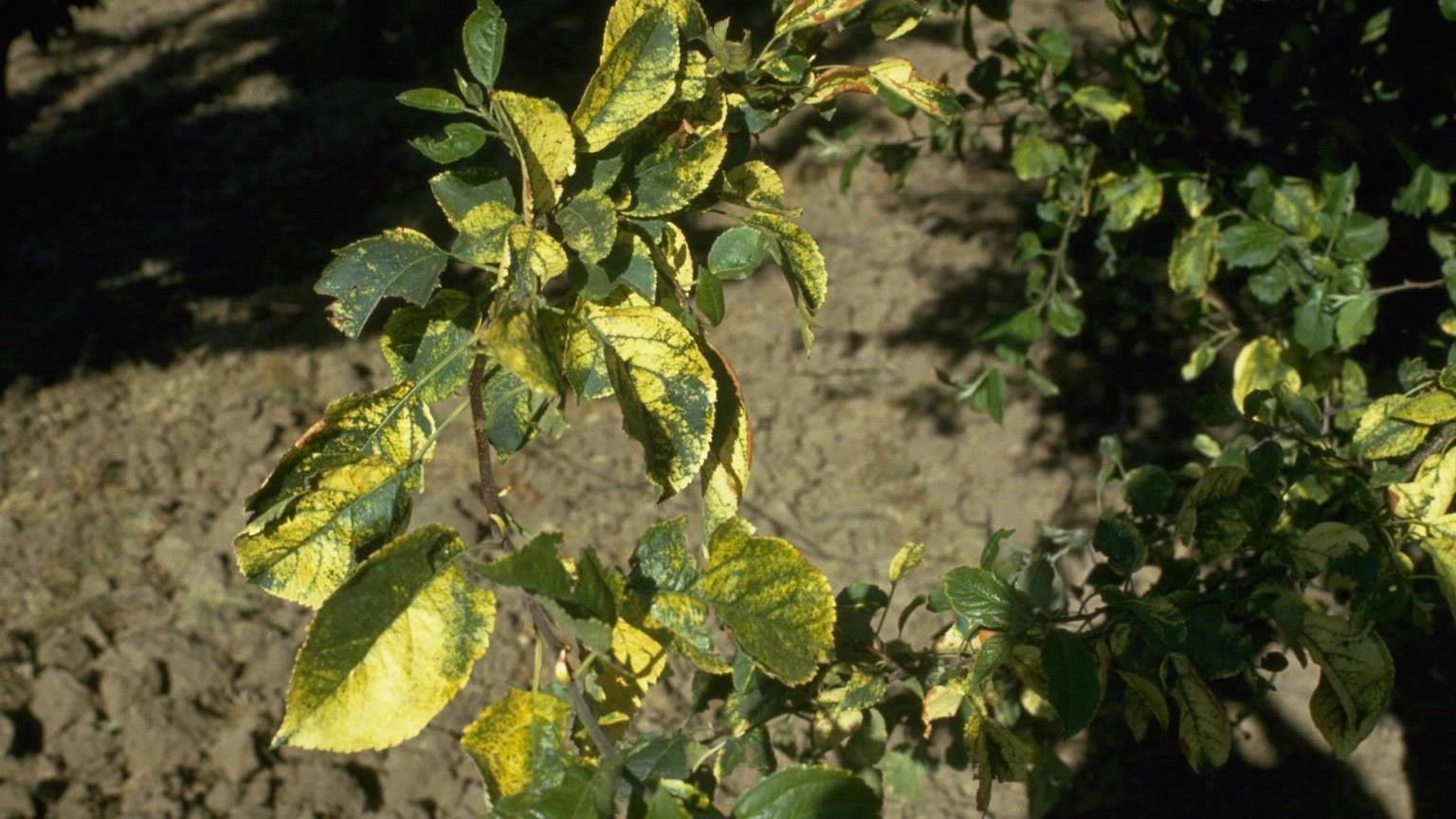Key points
- Virus symptoms often include color changes in the leaves such as a mosaic or mottled pattern of light and dark green. Other color changes could appear as ring patterns of light green or necrotic areas.
- Other symptoms include stunted or malformed new growth, unusual flower colors, and dieback of terminal growth.
- These disease symptoms in many plants can be confused with nutritional deficiencies or environmental effects such as air pollution.

Mottled leaf pattern caused by a virus. Photo: University of Maryland
Plant viruses
- Most plant viruses cause systemic infections.
- Plant viruses are commonly spread from plant to plant by insects that feed on sap such as aphids, thrips, and whiteflies.
- Other common modes of virus dissemination include infected seeds, sap, divisions, grafted plant varieties, bulbs, and pollen.
- Viruses can also be spread by horticultural activities such as vegetative propagation and pruning. Many viruses can survive in weeds adjacent to the horticultural plants that become infected in our gardens.
Management
- The management of virus diseases often involves the removal of the infected plant to prevent spread to adjacent healthy plants. There is no cure for infected plants.
- Weed removal is very important since it can be the primary source of infected plants where insects breed or overwinter before moving onto healthy plants in the garden.
- Never knowingly plant virus-infected varieties into your garden. Purchase certified virus clean stock and be alert to remove and dispose of plants that exhibit disease symptoms.
